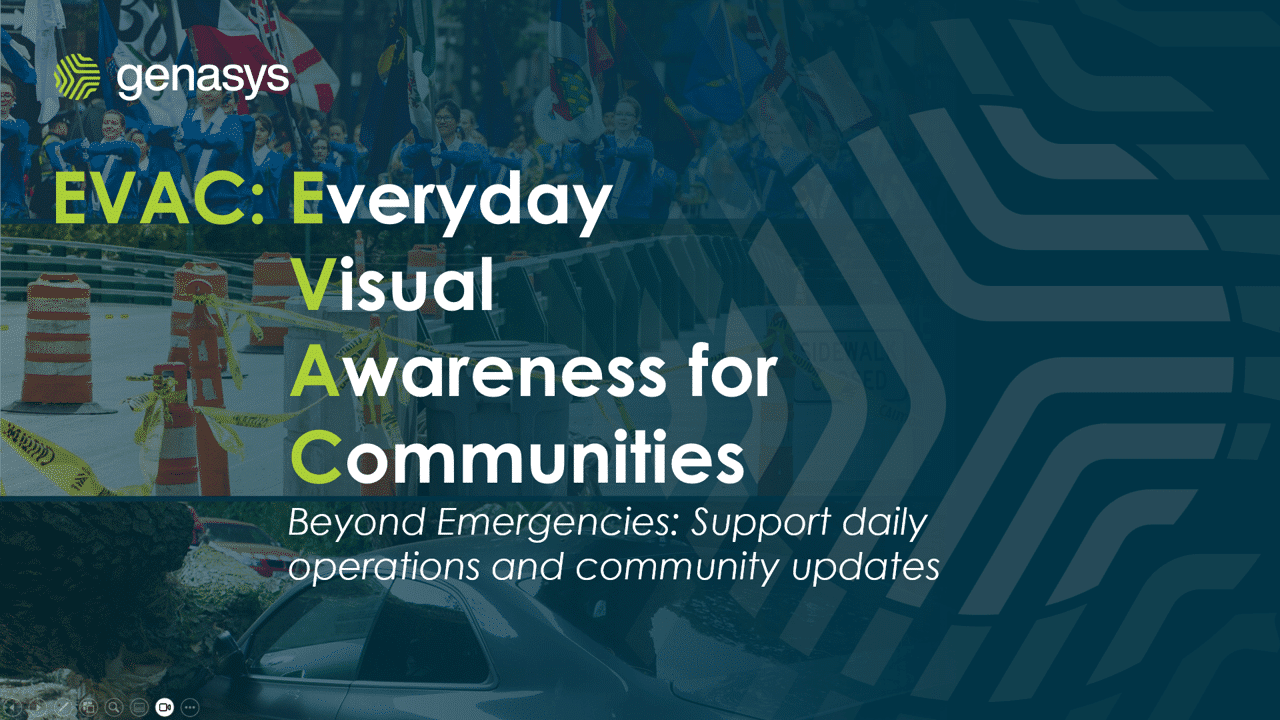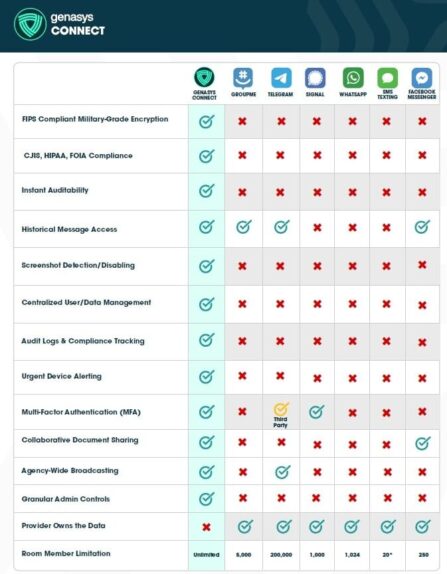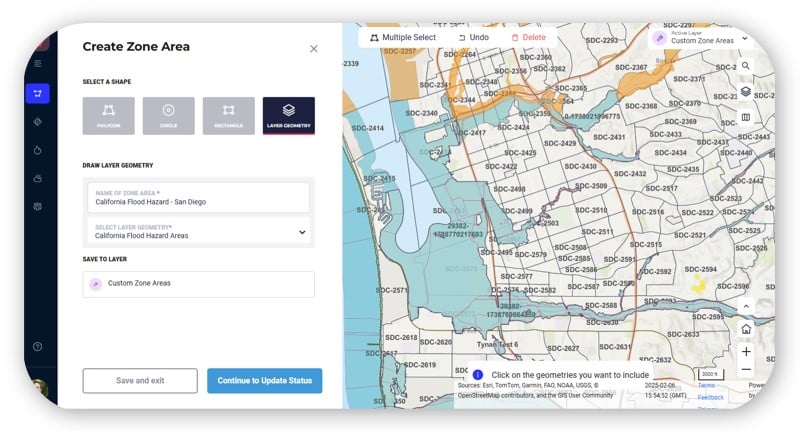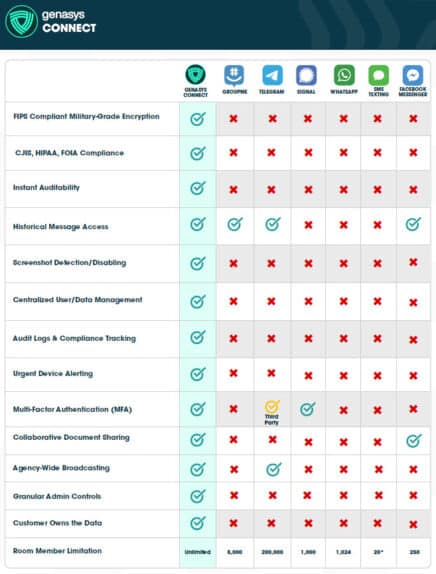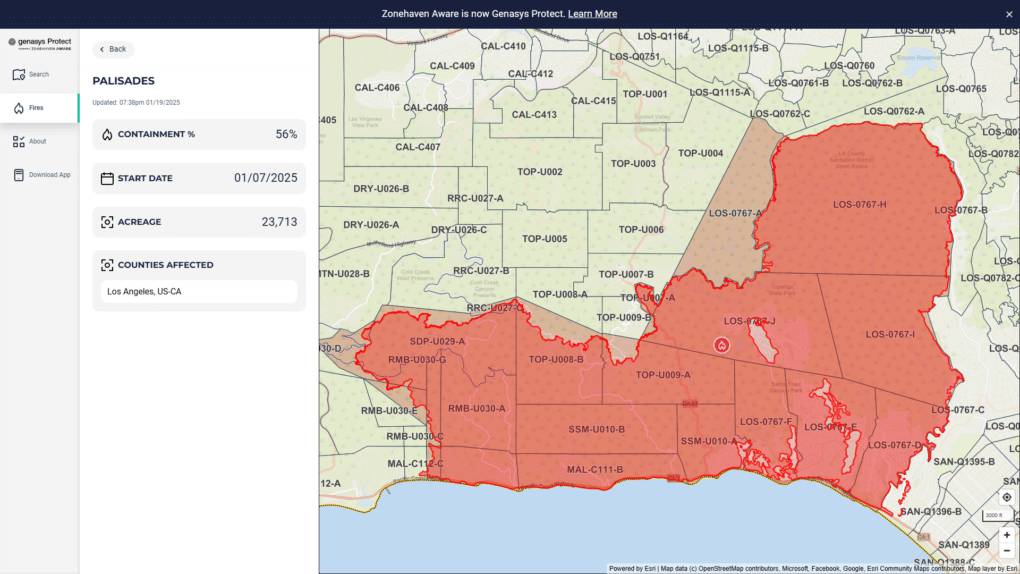In the public safety sector, we tend to think that security is the priority for work-related messaging. That’s certainly one piece of the puzzle. But in reality, the critical part of law enforcement communication compliance boils down to CJIS and the FOIA mandates.
Too many officers use standard public messaging apps and other platforms like WhatsApp without understanding the risks. And those risks aren’t just connected to the agency—there’s also the potential for officers’ personal cell phones to get subpoenaed during an investigation.
Communication Compliance and Public Information Lawsuits
We need to ensure that the government employee communication regulations are upheld. That means agencies need to have the capabilities to review and audit all work-related messaging. It’s one thing to pull those records from email chains. Yet when officers are stuck on using non-compliant instant messaging platforms, there’s no way to run comprehensive audits.
Failure to follow-through on a public information request can be devastating to an investigation, as well as the officers themselves. Again, when we aren’t using apps designed for law enforcement, the auditing process could easily require police to surrender their phones. What’s more, agencies can face terrible fines whenever the media or public discovers any sort of breach with your employees’ communication compliance requirements.
The legal ramifications can’t be ignored. The only way to avoid them entirely is to give everyone in your agency a better interdepartment communications solution.
Auditing Your Employee Communication Records
Agencies need an interdepartmental communications solution that’s easy to use, and also one that automatically logs and stores messages for auditability. That’s where an app that’s specifically designed with government employees in mind comes into play.
Executive team members need a way to present an organized message activity history should a public information request be received. Yet being able to export those records whenever it’s required for an investigation can only happen when your team is already utilizing a platform that logs those work-related conversations.
Having that data stored in a secure Cloud Portal makes all the difference. This isn’t something that public messaging apps are built for. On the bright side, though, there’s a simple solution.
You can easily maintain communication compliance with a new type of app. Evertel keeps agencies in the clear because it creates timestamps and a streamlined audit trail to help you automatically align with today’s strict employee communication regulations. Officers still have the ability to retract messages in their chats when there’s been a mistake sharing incorrect information or intelligence. But everything is still recorded, along with those timestamps of retractions. Then you’ll have the power to share a complete audit trail—and be able to export them in a variety of formats.
True LE Communication Compliance—with Evertel
Full historical logging protects agencies from civil lawsuits and complications with audit reporting. But you need to get on a compliant messaging app.
Evertel was built by law enforcement veterans, which means the solution gives agencies everything they need to do their jobs efficiently—with true communication compliance. No type of public messaging solution can provide that.
To learn more about the difference between these types of apps, just take a look at the Public Safety Communication App Checklist. It’s got all of the information agencies need to know about their employee communication regulations and how to ensure they have the best tools in place for full historical logging and audit reporting. Letting your officers use an instant messaging platform that’s not compliant just can’t be risked.
Public Safety Communication App Checklist
While it’s easy and free to use standard messaging apps for work, it
comes with high risk. The texting platforms on your iPhone or
Android-and even others like WhatsApp, Signal, and Voxer-just
aren’t designed for public safety.
Download




